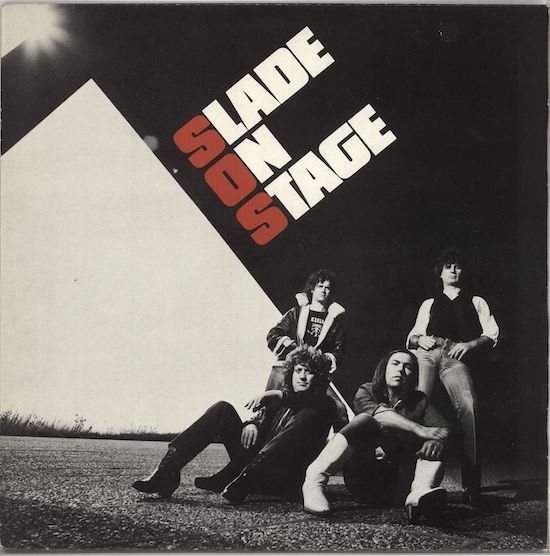Slade were on their uppers come the end of the 1970s, just like most of the glam stars of the early 70s. Where Roxy Music and David Bowie’s art-rock edge and willingness to experiment had pushed them beyond the realm of glitter and eyeliner, Slade and Sweet, the giants of the yob-rock end of glam, had spent the second half of the decade trying to be taken seriously, and failing. The hit singles dried up, and without hit singles, there was nothing to propel the albums. And without albums anyone paid attention to, there were no crowds coming to the shows.
Slade’s "Superyob" guitarist Dave Hill summed up the situation in his autobiography, "We worked really hard," he wrote, "we played anywhere that would have us – clubs, universities, colleges, Meccas, even the chicken-in-a-basket places we swore we’d never do – but there didn’t seem to be a glimmer of hope." Slade’s last single of the 70s was ‘Okey Cokey’, a cover of the kids’ party song; it didn’t chart. That’s how low Slade, the once unstoppable Slade, had fallen.
By the summer of 1980, Hill was so despondent he was considering becoming a wedding driver, using his famed gold Rolls-Royce to ferry happy couples to and from church, and had to be talked into staying for a festival booking by the band’s manager, Chas Chandler (drummer Don Powell later recalled that he believed the band had actually broken up by then – and that Chandler sold the show as the chance to go out on a high). Ozzy Osbourne had dropped out of the Reading Festival, and Slade had been approached, but Hill was reluctant to appear on a bill packed with heavy metal bands, where he felt Slade would bomb. How wrong he was.
Those metal bands, and their fans, had grown up on Slade. "My first favourite band ever was Slade," Venom guitarist Mantas told me, when I interviewed him for my book Denim and Leather: The Rise and Fall of the New Wave of British Heavy Metal. Def Leppard’s Joe Elliott adored them. So did Girlschool. John Gallagher of Raven, a huge inspiration to the later US thrash metal bands, told me how much he loved Slade and Sweet.
In 1982, Holder would acknowledge the role of metal in reviving his band, telling Malcolm Dome of Kerrang!: "I suppose we’ve also had a lasting effect on the kids who follow HM today. You see, about 10 years ago when we were having all those hits, these people would only have been eight or nine years old. They’ve obviously picked up on the band from all the exposure we had back then, and the songs have stayed with ’em. We certainly attract a very young audience nowadays – fans who just couldn’t have been old enough to see us live when we first…


